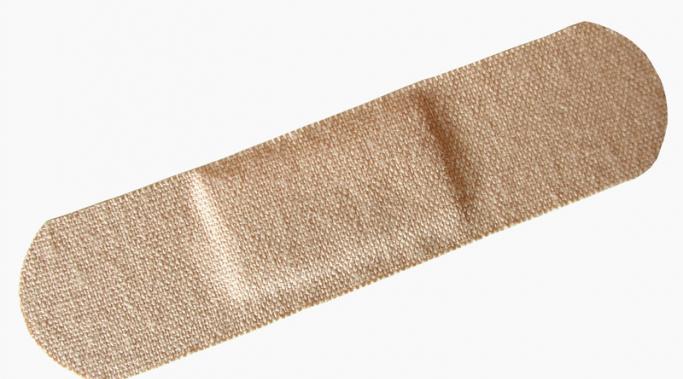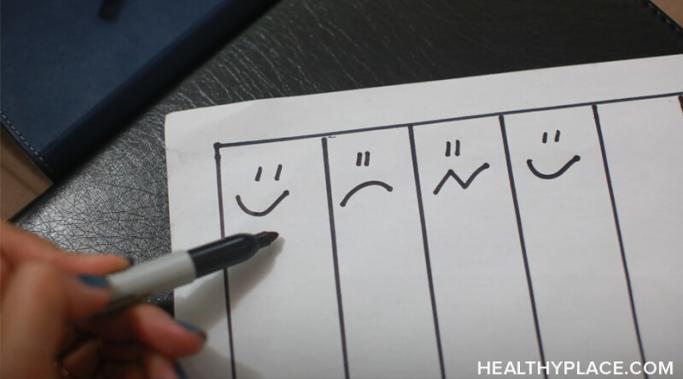When I was first diagnosed, I went through 18 months of medication trials without success. I initially tried a bunch of antidepressants thanks to misdiagnosis and then I went through mood stabilizers when it was confirmed that I had bipolar disorder.
And every medication was pretty much the same. I would take the drug, it would induce horrible side effects, I wouldn’t be able to tolerate the drug and then I would have to try something else. It was unadulterated hell.
After 18 months of that, I went to my psychiatrist’s appointment, sat down and looked at my doctor as he threw his hands in the air and said, “I can’t help you. You’re no longer my patient.”
My doctor had fired me.
About Natasha
In my lifetime I’ve been a very suicidal girl. I’ve been fighting off urges of suicide since I was about 13 years old, actually. Yes, effective treatment makes these disappear but treatment is, alas, not always effective.
But although I’ve thought of death more in this lifetime than anyone should, I’ve never actually been around a dying person. I’ve never seen a person so close to death that you can see the shadow of the scythe. That is, until now.
A normal life is something I’m not very familiar with. I’ve never really had one. From the time I was a kid with an alcoholic father, to the teenage years I spent depressed, to my adult years dealing with psychiatrists, symptoms and medication side effects, I’ve never really enjoyed anything termed normalcy.
But the question is, does anyone with bipolar enjoy a normal life?
In the presentation I give to schoolchildren, I mention that, at various points in my history, I self-harmed. I cut myself. It’s a dirty truth, but there it is.
And not surprisingly, one teen asked me today, “Why would anyone cut themselves?”
Good question. Whole books have been written exploring this question and there is no single answer to why people self-harm. However, as to why most self-harm: it seemed like a good idea at the time.
Bipolar places limitations on our lives. It might be the fact that we can’t go out and enjoy a cocktail after work or it might be the fact that we can’t stay out all night. Or it might be the fact that we can’t work full time or that we have to live with medication side effects that make us sick. Limitations are there, no matter how you look at it.
But what happens when you don’t respect those limits? What happens when you choose to ignore them?
I can tell you. You feel like a dog’s breakfast. Just ask me. I did it on Monday.
There is something I have noticed about my busy bipolar brain. I’ve noticed that it seems obsessed with multitasking. It almost seems to not allow me to do one thing at once. If I sit down to watch TV, for example, I can’t stop myself from also picking up my computer or playing a game on my cell phone. When I sit down to write an article, I have to constantly also be checking in on my social media at the same time. People always wonder how I can be everywhere at once. That’s easy. I’m everywhere at once because my brain is everywhere at once.
Through my years of being a person with bipolar disorder I have come up with a variety of coping techniques. Many of these techniques have fancy names and are detailed in therapies like cognitive behavioral therapy (CBT). Of course, I used them long before I ever knew they had names.
And one of my current skills is thought-boxing. Or, at least, so I call it. To the best of my knowledge, this particular skill doesn’t have a name. This is a Natasha Skill. Something I developed over years of trying really hard not to let the crazy kill me.
It’s a way of controlling thoughts. It’s a way of keeping the horrendous, bipolar thoughts out of my consciousness, as much as possible. It’s a way of sidestepping all the thoughts that are, indeed, trying to kill me.
The first thing I thought of this morning was killing myself. Literally, as consciousness slowly overtook my brain thoughts of suicide were all that were there.
It’s a bad day.
A while back I wrote on a campaign that was working to change the face of mental illness. It presented real, live people with mental illness that challenged the assumptions that people might have about mental illness. Namely that we’re all unemployed, unsuccessful, useless crazy people.
Now, I did have some problems with the campaign but I applauded their attempt to get people to realize that mental illness is about real people and that each person with a mental illness is an individual with all the possibilities of any other individual in our society.
And I found myself putting my own face on mental illness, bipolar disorder, just the other day. I did it by using the phrase, “. . . people with bipolar, just like me.”
I have talked many times about how important a routine is in bipolar disorder (Limitations and Rules that Keep Us Safe). There are many reasons for this, but one of the main ones is because bipolar disorder is considered a circadian rhythm disorder by many medical professionals. Your circadian rhythm is critical to your functioning as a human as it tells your body when to sleep and when to be awake (among other things) and trying to go against it is like swimming upstream. Assuming bipolar disorder is, indeed, a circadian rhythm disorder, we should do everything we can to work to regulate our circadian rhythms in a healthy manner. Keeping a strict bipolar routine is one major way of doing that.






![MC910217009[1]](/sites/default/files/styles/blog_listing/public/uploads/2013/03/MC9102170091.png?itok=utWsS2Qv)


